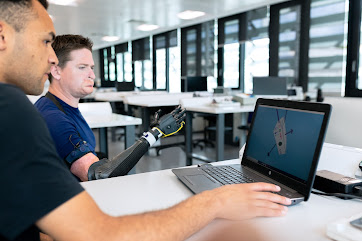The Ethics of AI: Balancing Innovation and Responsibility
As AI continues to advance at an unprecedented pace, it's important to consider the ethical implications of its use. AI has the potential to revolutionise everything from healthcare to transportation to finance, but it also raises important questions about safety, privacy, and accountability.
Introduction
One of the main challenges in developing AI technology is balancing innovation with responsibility. On the one hand, there is a great deal of excitement and potential for AI to transform industries and improve our lives. On the other hand, we must ensure that we're using AI in a responsible and ethical manner that benefits society as a whole.
The Challenge of Balancing Innovation with Responsibility
One of the biggest ethical concerns related to AI is the potential for bias and discrimination. If the data used to train AI algorithms is biased or incomplete, it could lead to incorrect or unfair treatment recommendations. For example, if an AI algorithm used in hiring is trained on biased data, it could perpetuate existing biases and discrimination in the hiring process.
Another ethical concern related to AI is the potential for machines to surpass human control. As machines become increasingly intelligent, they may develop the ability to self-improve, creating a feedback loop of exponential growth in intelligence that could quickly surpass human understanding and control. This could potentially lead to situations where machines are making decisions that go against human values and interests.
Addressing the Ethical Concerns of AI
To address these concerns, it's important to prioritise safety and ethical considerations in the development and deployment of AI systems. This includes ensuring that machines are transparent and accountable in their decision-making processes and that they are designed to align with human values and interests. Additionally, there needs to be continued research and development in the field of AI safety, with a focus on ensuring that machines remain under human control and are developed with safety in mind.
Another important consideration is the impact of AI on employment. While AI has the potential to increase efficiency and productivity, it could also lead to job displacement and social disruption. As machines become more intelligent than humans, they could take over jobs that were previously performed by humans, leading to significant job losses in some industries.
It's essential to take a proactive approach to AI and employment, investing in upskilling and reskilling programs to help workers transition into new roles and develop the necessary skills to work with AI technology. It could also involve developing policies and regulations to ensure that AI is used in a responsible and ethical manner that benefits society as a whole.
Conclusion
In conclusion, the development and use of AI technology raise important ethical considerations that must be addressed in a responsible and proactive manner. By prioritising safety, transparency, and accountability, we can ensure that AI is used to benefit society while minimising its potential negative impacts.
GPT






Comments
Post a Comment